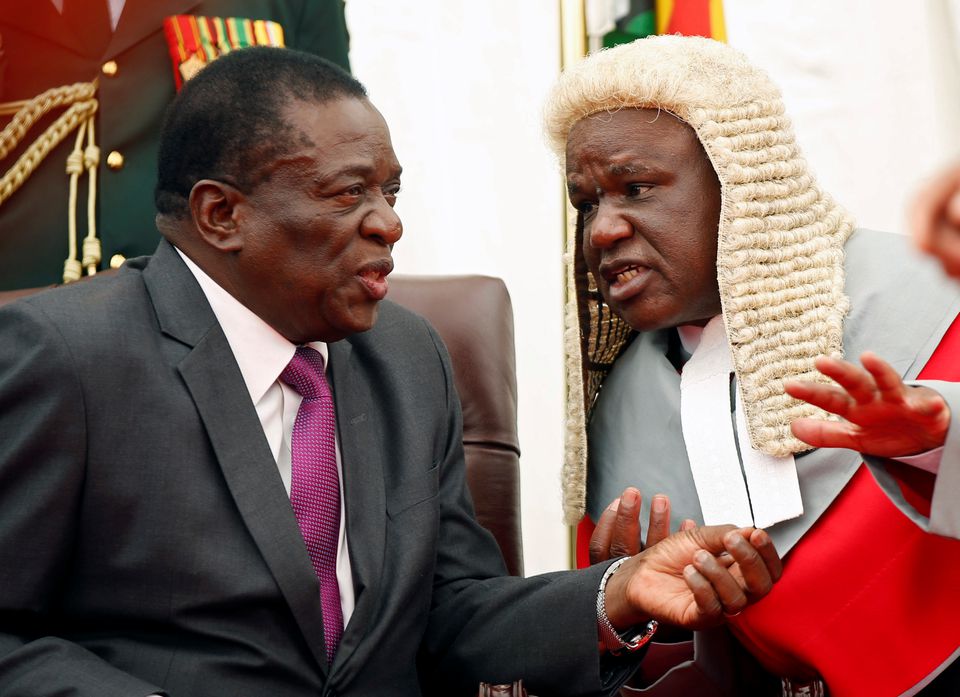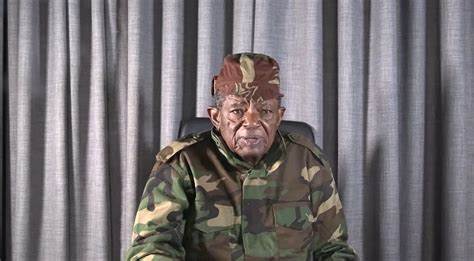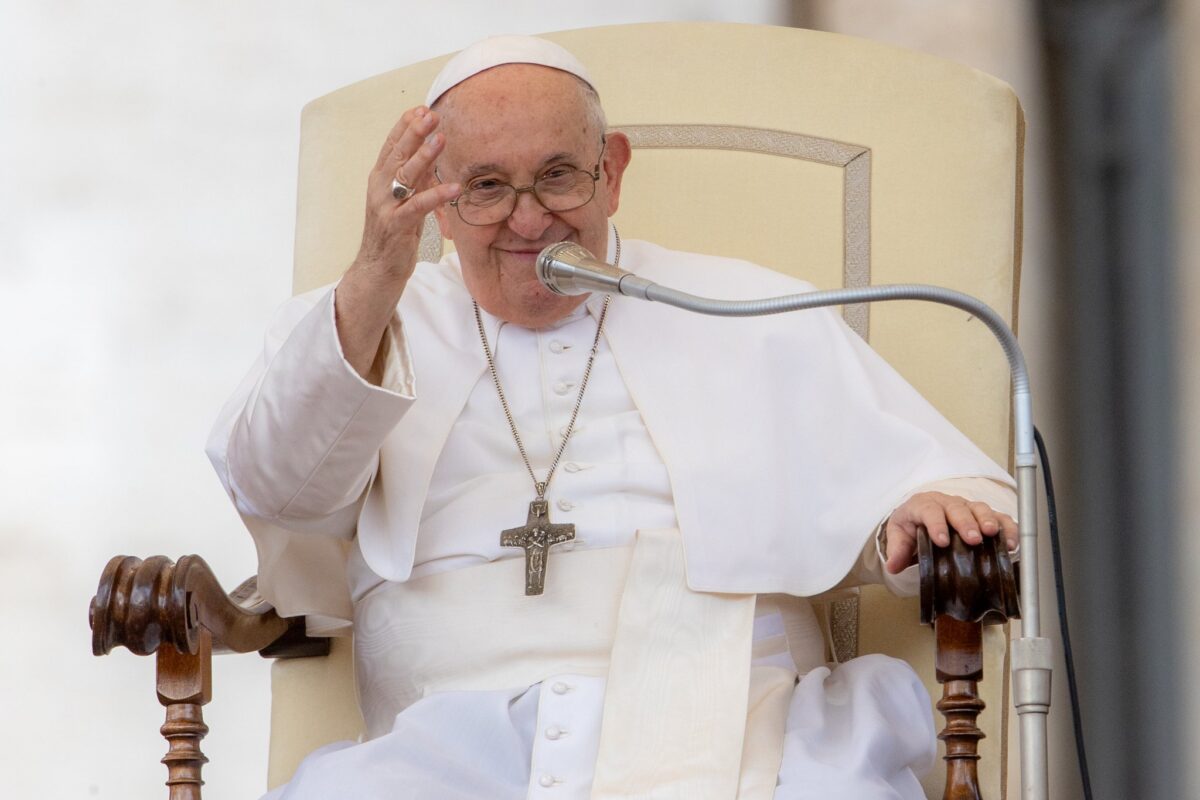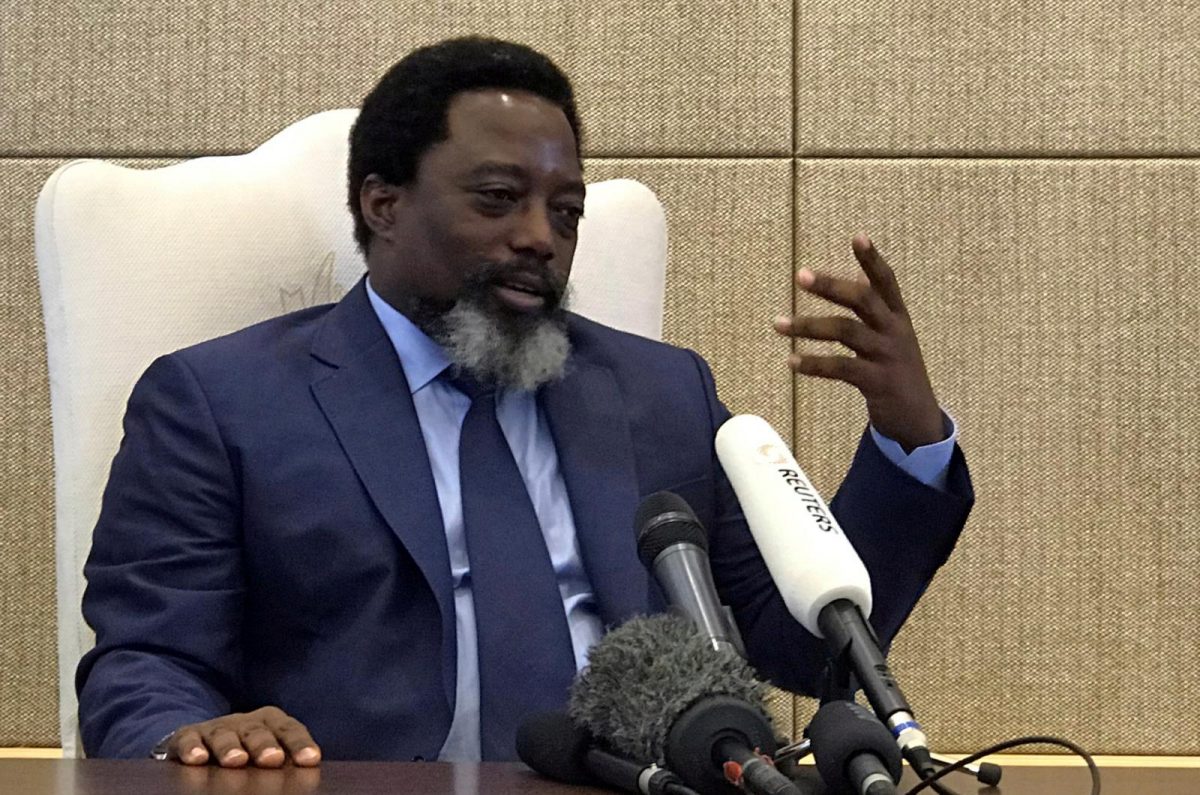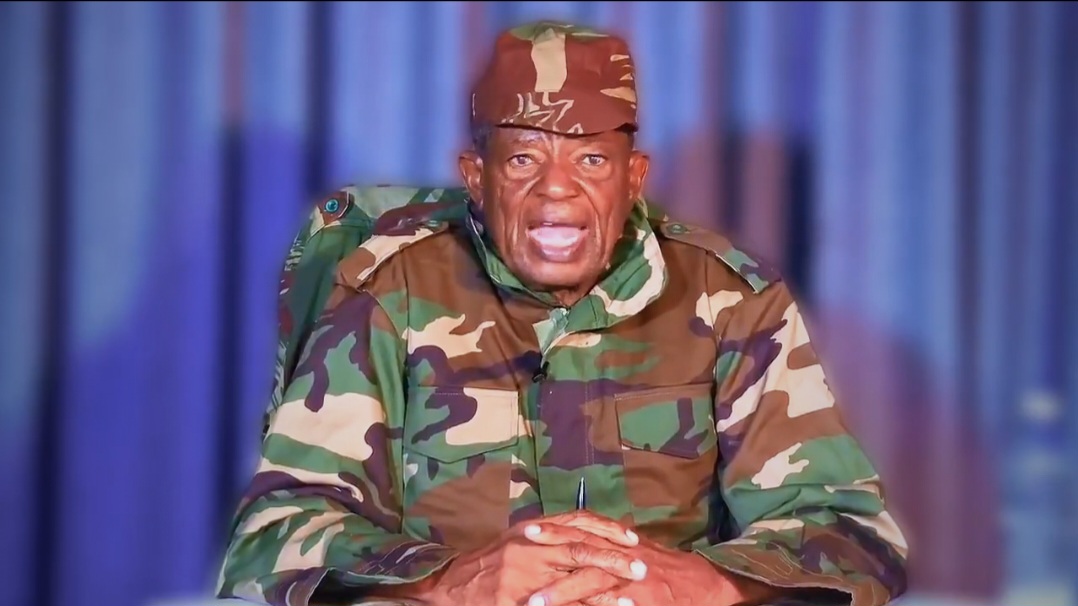HARARE – President Emmerson Mnangagwa will on Thursday appoint six new Supreme Court judges, a deliberate move to pre-empt ongoing High Court hearings on the legality of his move as he battles to keep Luke Malaba – ousted by the High Court – as his Chief Justice.
Among the appointments, Mnangagwa will promote Judge President George Chiweshe, a former ally who recently became a target of rabid criticism by Justice Minister Ziyambi Ziyambi who questioned “why a group of judges… continue to be allocated cases in which the Second Republic is involved in.”
Other judges set to fill vacancies created by the recent elevation of Supreme Court justices to the Constitutional Court include Justice Samuel Kudya, Justice Joseph Musakwa, Justice Alphas Chitakunye, Justice Hlekani Mwayera and Justice Felistus Chatukuta.
Critically, Mnangagwa wants the judges – picked with Malaba’s input – to hear the latter’s appeal against a May 15 High Court ruling which declared that he ceased to be a judge and Chief Justice on that day after reaching the retirement age of 70. All Supreme Court judges were cited as respondents in that case, disqualifying them from hearing Malaba’s appeal and creating what lawyers described as a “constitutional crisis.”
Three High Court judges said constitutional amendments rushed through parliament – and which Mnangagwa used to extend Malaba’s term by five years – did not remove a requirement for a public referendum where a term limit of an incumbent was to be extended.
On May 27, Bindura University law student Chamunorwa Chingwe filed an urgent High Court application seeking to halt any process to appoint new Supreme Court judges “to the exclusion of those who are qualified by constitutional requirements to also be considered for such position” even if they were currently not judges.
Mnangagwa’s constitutional amendments gave him sweeping new powers to appoint judges to superior courts without going through public interviews, but lawyers for Chingwe say the constitution still provides that former judges and lawyers who have practised for seven years and are older than 40 qualify for appointment, which would place an obligation on the Judicial Service Commission (JSC) to advertise vacancies before it draws up a shortlist from which Mnangagwa appoints judges of the superior courts.
A member of Chingwe’s legal team told ZimLive that Mnangagwa – by denying that the appointments were imminent in an affidavit filed by Attorney General Prince Machaya in opposition to Chingwe – had likely committed perjury.
In his affidavit filed on Wednesday, Machaya said Chingwe’s claim that he became aware of Mnangagwa’s plans to appoint new Supreme Court judges on May 26 was a “bold allegation not supported by any fact which he pleaded” while dismissing his application as based on a “rumour”.
Alternatively, Machaya argues that nothing stops Mnangagwa from appointing sitting judges to the Supreme Court.
“There is nothing that prevents the appointment of a group of sitting judges to the Supreme Court without conjoining the process with public interviews for those who are not sitting judges,” Machaya insisted.
Multiple sources have told ZimLive that plans have been drawn for the six judges to be sworn-in on Thursday. Justice Tawanda Chitapi, due to hear the Chingwe application, has set the matter down for Friday at 2.30PM after hearing from his lawyers and those of the JSC and Mnangagwa on Wednesday.
Tendai Biti, who was a member of the legal team that represented Harare lawyer Musa Kika in his successful challenge to Malaba’s purported term extension described the appointment of the judges as a “dog’s breakfast.”
“It’s a dog’s breakfast, but one which no dog will touch. No. Not by a long mile,” Biti, who is also the vice president of the opposition Movement for Democratic Change, wrote on Twitter.
Malaba’s refusal to leave office has plunged Zimbabwe’s judiciary into crisis, and the latest appointments will not do much to assuage opposition concerns that Mnangagwa is packing superior courts with his allies to strengthen his authority.
His Justice Minister Ziyambi vowed after the High Court judgement that “time has come also to look at the transformation of the judiciary” – a chilling illustration that the regime will not accept court judgements against it.
Mnangagwa is willing to risk whatever is left of his political stock by backing Malaba, who was pivotal in putting him in power after his disputed victory in the 2018 elections. Malaba tossed out a challenge brought by Nelson Chamisa of the MDC Alliance, who narrowly trailed the Zanu PF leader according to official results.

